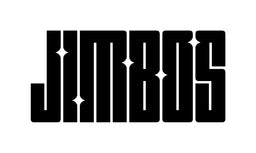Why Hard Water Creates Spots in Summer
Ever wash your car on a hot summer day only to find water spots minutes later? That’s hard water at work. When the heat hits, those mineral-rich droplets evaporate faster — leaving behind crusty white spots that can etch your paint. In this guide, you’ll learn exactly why hard water gets worse in summer and how to stop water spots before they form.
Estimated Reading Time: ~8 minutes
What Is Hard Water?
Hard water is regular tap water that contains dissolved minerals — mainly calcium and magnesium. When this water dries on your paint, those minerals are left behind as solid deposits. Over time, they bond to your clear coat and can cause etching, dullness, and staining.
Most U.S. homes have at least moderately hard water, and it becomes a bigger issue in the summer because heat accelerates evaporation.
Why Water Spots Get Worse in the Heat
During summer, surfaces and ambient air heat up, making water evaporate almost instantly. When hard water dries too fast, the minerals don’t have time to rinse away — they get baked into your paint. This creates stubborn, white, chalky spots that can’t be removed with just soap.
Even worse, if your car is dark-colored, it absorbs more heat and amplifies the problem. That’s why washing early in the morning or evening is critical during hot months.
What Hard Water Does to Paint and Glass
| Surface | Hard Water Effect | Fix |
|---|---|---|
| Paint | Etching and dull spots from mineral burn-in | Clay and polish with Picture Perfect Polish |
| Glass | Permanent spotting and streaks | Use vinegar-based glass cleaner or polish |
| Trim & Rubber | White chalky residue buildup | Clean and restore with All Dressed Up |
How to Prevent Water Spots in Hot Weather
- Wash in the shade: Always work out of direct sunlight. The cooler the surface, the slower water evaporates.
- Pre-soak with The Super Soaper: Its high-lubricity formula encapsulates minerals and grime, reducing contact damage.
- Rinse in sections: Wash one panel at a time so you can rinse and dry before it dries on its own.
- Dry immediately: Use the Massive Drying Towel or a blower to prevent spotting.
- Seal your paint: Apply Tough As Shell to create a hydrophobic surface that repels hard water.
Say Goodbye to Summer Water Spots
Use The Super Soaper for a slick, spot-free wash and protect your finish with Tough As Shell to stop hard water in its tracks.
Buy on Jimbo’s Detailing Buy on AmazonHow to Fix Existing Water Spots
- Step 1: Wash with The Super Soaper to remove surface grime.
- Step 2: Use a clay mitt to pull out embedded mineral residue.
- Step 3: Polish with Picture Perfect Polish to restore shine and remove etching.
- Step 4: Seal with Tough As Shell or The Gloss Boss for long-term protection.
Hard Water vs Soft Water for Washing
| Water Type | Mineral Content (ppm) | Spot Risk | Ideal For |
|---|---|---|---|
| Hard Water | 150–400+ | High | Rinse with DI water or shade washing |
| Soft Water | 0–100 | Low | Everyday washing |
When to Use Deionized (DI) Water
If you live in a region with hard water, adding a DI rinse is the ultimate solution. Deionized water has zero minerals, meaning it dries completely spot-free even in full sun. You don’t need a full system — a portable DI unit or refillable filter cartridge is enough to handle your final rinse safely.
To learn more, check out Deionized Water: Is It Worth It?.
Pro Detailer’s Tip
Always wash from the top down and dry as you go. On hot days, even a few seconds of sunlight can cause spots to bake in. If you can’t find shade, keep a bottle of The Super Soaper in a pump sprayer to pre-soak and re-lubricate panels while you work. It’ll buy you time and prevent etching.
Related Reading
- How to Wash a Car in the Heat Without Spots
- Washing in the Shade vs Direct Sunlight
- Deionized Water: Is It Worth It?
- How to Wash a Car During a Drought
- How to Wash a Car in the Winter
Stop Hard Water Before It Spots
Summer heat doesn’t have to ruin your wash. Use The Super Soaper for slick, spot-free cleaning and Tough As Shell to repel minerals before they stick.
Buy on Jimbo’s Detailing Buy on AmazonFAQs
Why does hard water cause spots?
Because it contains calcium and magnesium minerals that stay behind when water evaporates, leaving white stains and residue.
How can I tell if my water is hard?
Look for chalky residue on faucets or cloudy film on glass — both are signs of high mineral content. You can also buy a simple test strip.
Does filtered water prevent water spots?
It helps, but only deionized water eliminates minerals completely for a spot-free rinse.
Can ceramic coating prevent water spots?
Not fully, but coatings like Tough As Shell make minerals easier to rinse off and prevent etching.



